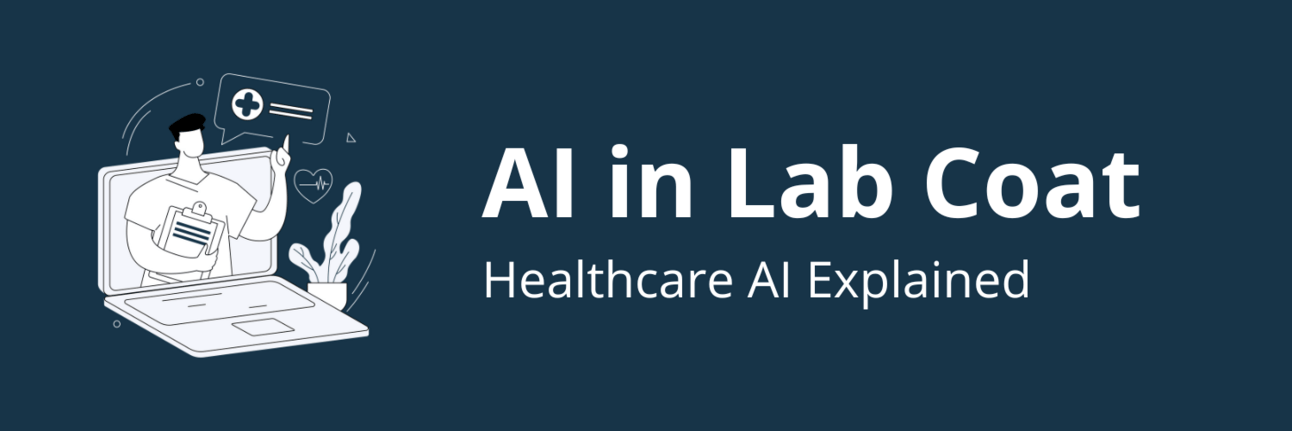
Happy Friday! It’s October 3rd.
AI isn’t failing in healthcare… it’s everywhere. What’s failing is how it’s implemented. Houdini Abtahi, National Healthcare Lead at Resultant, points out that only 30% of pilots in healthcare make it past the finish line. The reason isn’t a lack of support or regulation; it’s the data underneath.
AI models can’t scale if they’re built on incomplete records, siloed systems, or inconsistent formats. Abtahi’s argument is simple: governance isn’t red tape, it’s the foundation.
Until health systems invest in clean, connected, reliable data, most AI projects will remain expensive experiments that never get beyond pilots.
Our picks for the week:
Featured Research: AI Finds Seizure Triggers in Children
Perspective: IVF Automation Delivers 20 Babies
Read Time: 3 minutes
FEATURED RESEARCH
AI Helps Surgeons Map Safer Pathways for Epilepsy Surgery in Children

We often think of epilepsy as unpredictable, seizures that strike without warning. But for many children, there’s a hidden cause, the presence of tiny brain lesions that standard scans miss. That gap in detection delays treatment and keeps kids on medication when surgery might offer a cure.
A team at Murdoch Children’s Research Institute and The Royal Children’s Hospital has now trained an AI detector that can spot these lesions.
The study, published in Epilepsia, tested the tool on children with drug-resistant focal epilepsy, a form where seizures persist despite medication.
How the detector worked: The AI was trained on both MRI and FDG-PET scans from 71 children and 23 adults with focal cortical dysplasia, a leading cause of epilepsy in children.
It was validated across separate test cohorts. In children whose MRIs looked normal to radiologists, the AI flagged abnormalities in 94% of cases. For 12 children who went on to surgery, 11 are now seizure-free.
Why this matters: Roughly 1 in 200 children live with epilepsy, and cortical dysplasias often trigger seizures starting in preschool years.
These seizures can escalate to dozens per day, affecting learning, behavior, and mood. Standard MRI misses 60-80% of such lesions on the first scan, delaying the chance of curative surgery.
Next steps: With further testing in paediatric hospitals across Australia, this AI tool could shorten the path from diagnosis to surgery.
For children and families living with daily seizures, this advancement is the difference between managing a condition and the possibility of a cure.
For more details: Full Article
Brain Booster
Where was the world’s first “test tube baby,” Louise Brown, born in 1978?
Select the right answer! (See explanation below and source)
What Caught My Eye
ROBOTICS, AI, AND IVF
At Least 20 Babies Have Been Born Through IVF Automated by Robots and AI
Yesterday marked a milestone in fertility medicine: at least 20 babies have now been born through in-vitro fertilization performed almost entirely by robots and AI.
Infertility affects one in six adults, but IVF is costly and uneven, often $30,000 a cycle in the U.S., with wide “fertility deserts” where care is out of reach. In Mexico City, a system called Aura is testing full automation of 205 steps in IVF.
Computer vision picks the healthiest sperm, while robotic arms fertilize eggs with consistent precision.
The program, created by Conceivable Life Sciences, offers free treatment to couples who otherwise couldn’t afford it. Early results match conventional IVF, and researchers say automation could standardize quality, reduce costs, and make care more accessible.
Critics caution that large-scale safety data is still lacking. But for families already pregnant through Aura, these births may signal the beginning of a new chapter in reproductive medicine.
For more details: Full Article
Top Funded Startups

Byte-Sized Break
📢 Other Happenings in Healthcare AI
SpotitEarly partnered with Hackensack Meridian Health to validate its AI-canine hybrid breath test for early cancer detection, combining trained dogs' scent detection with its LUCID AI platform ahead of a U.S. launch. [Link]
The Trump administration's HHS has rejected the Coalition for Health AI (CHAI), backed by Microsoft and major health systems, calling it a non-regulatory “cartel” amid broader efforts to assert control over AI oversight in healthcare. [Link]
Researchers at UC San Diego launched Waldo, an open-source AI tool that scans social media for hidden health risks, outperforming chatbots with 99.7% accuracy in detecting adverse events from consumer health products. [Link]
Have a Great Weekend!

❤️ Help us create something you'll love—tell us what matters!
💬 We read all of your replies, comments, and questions.
👉 See you all next week! - Bauris
Trivia Answer: B) Oldham, England
Louise Brown was born in Oldham, England, as the first baby conceived through IVF. The achievement made global headlines and marked the beginning of modern fertility medicine.


